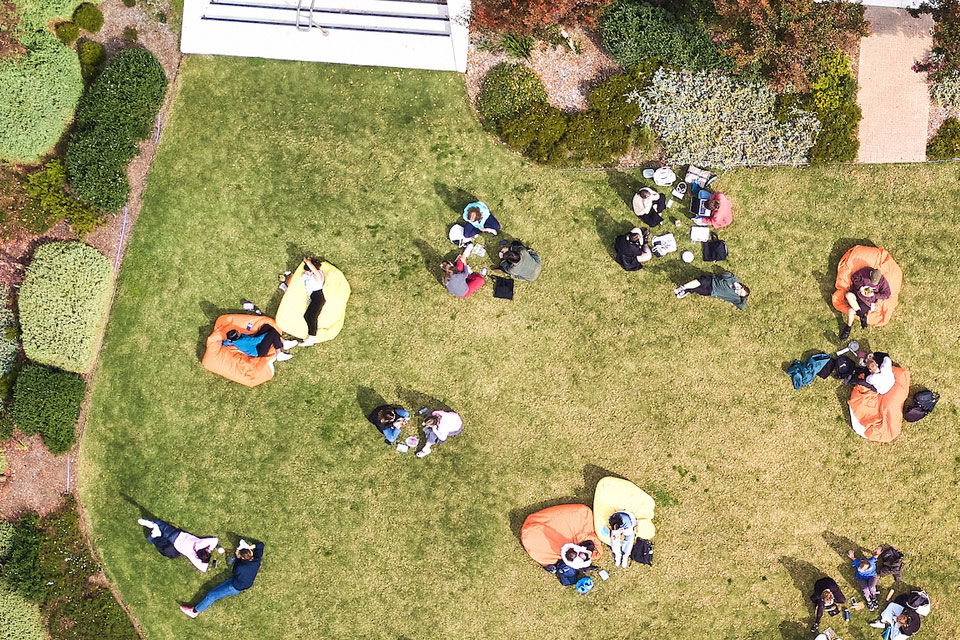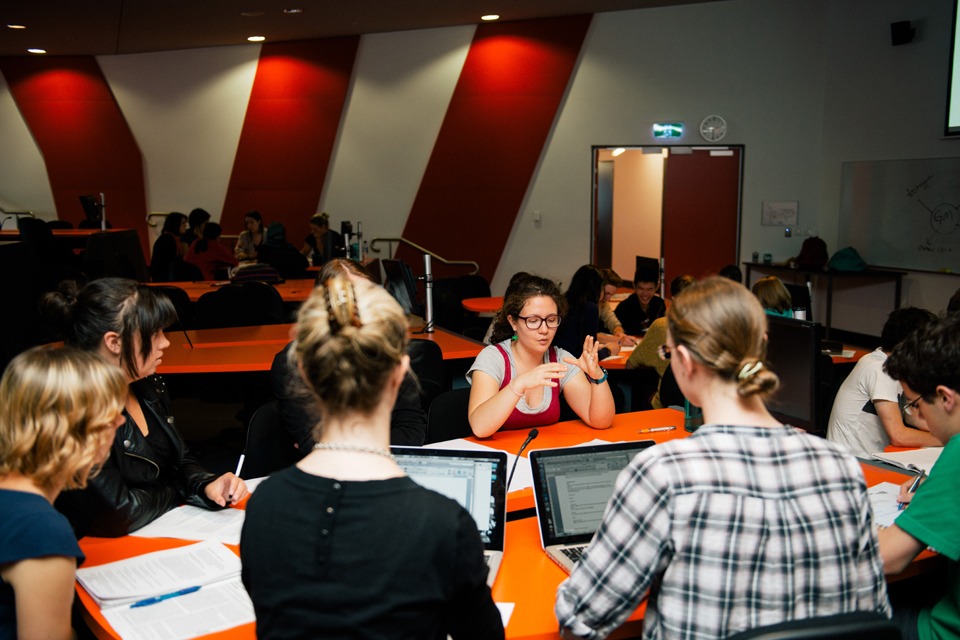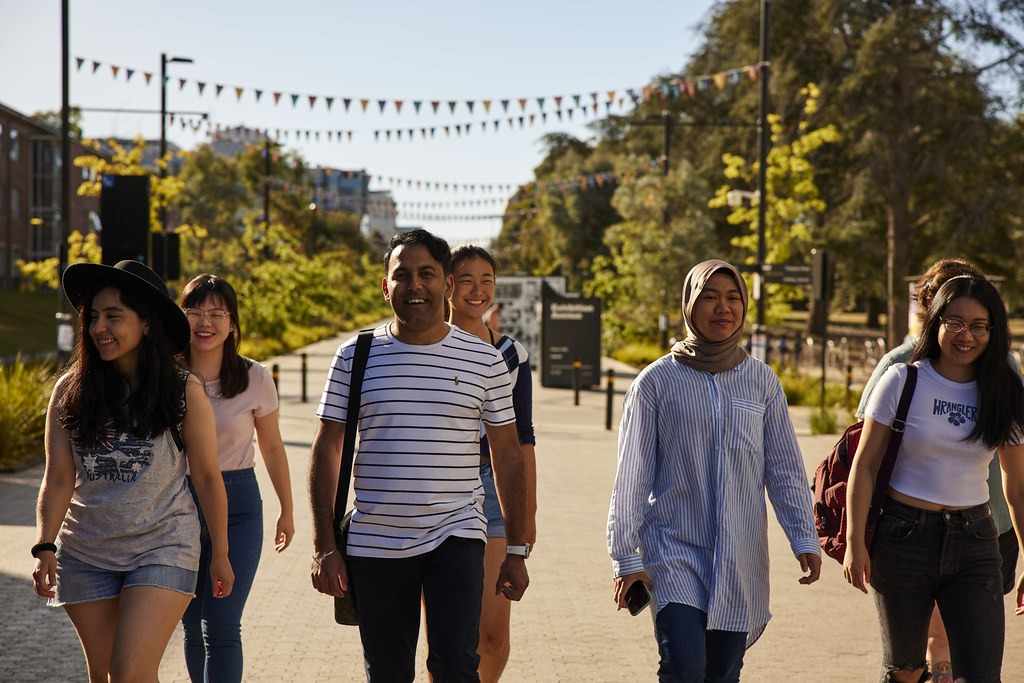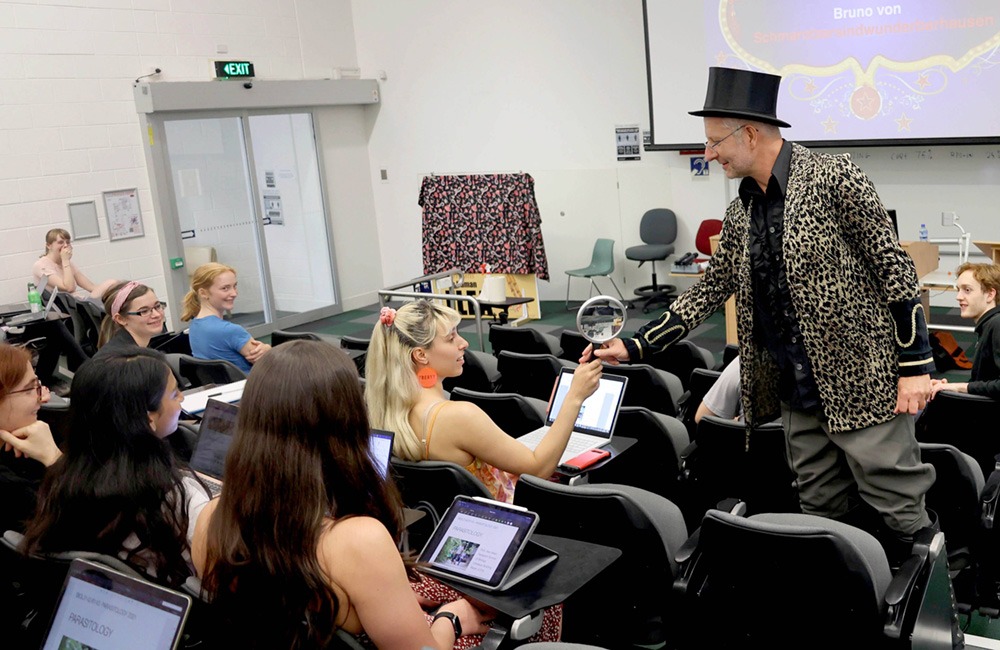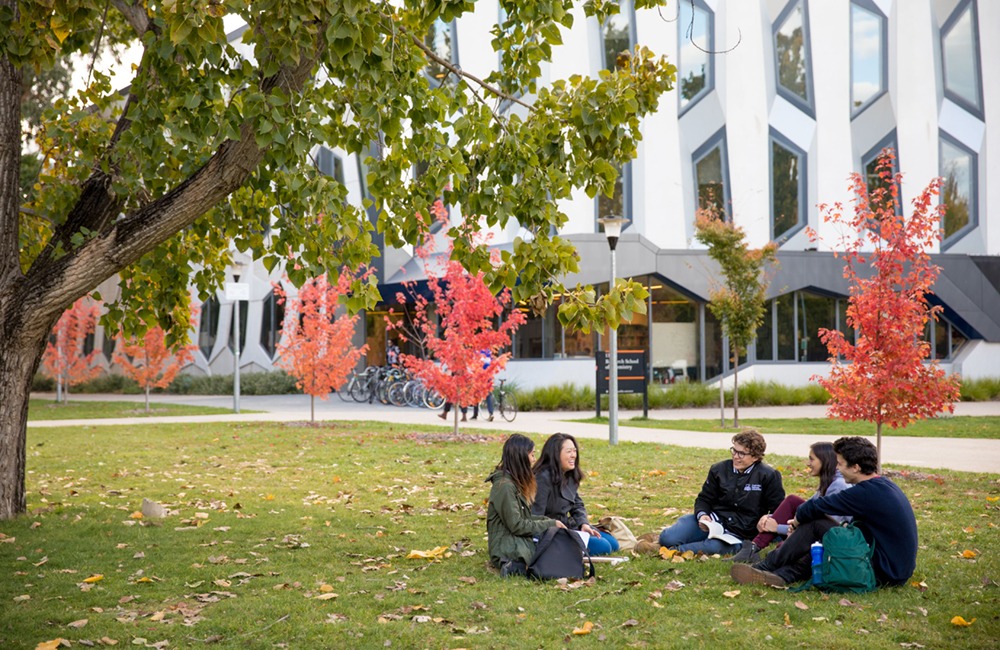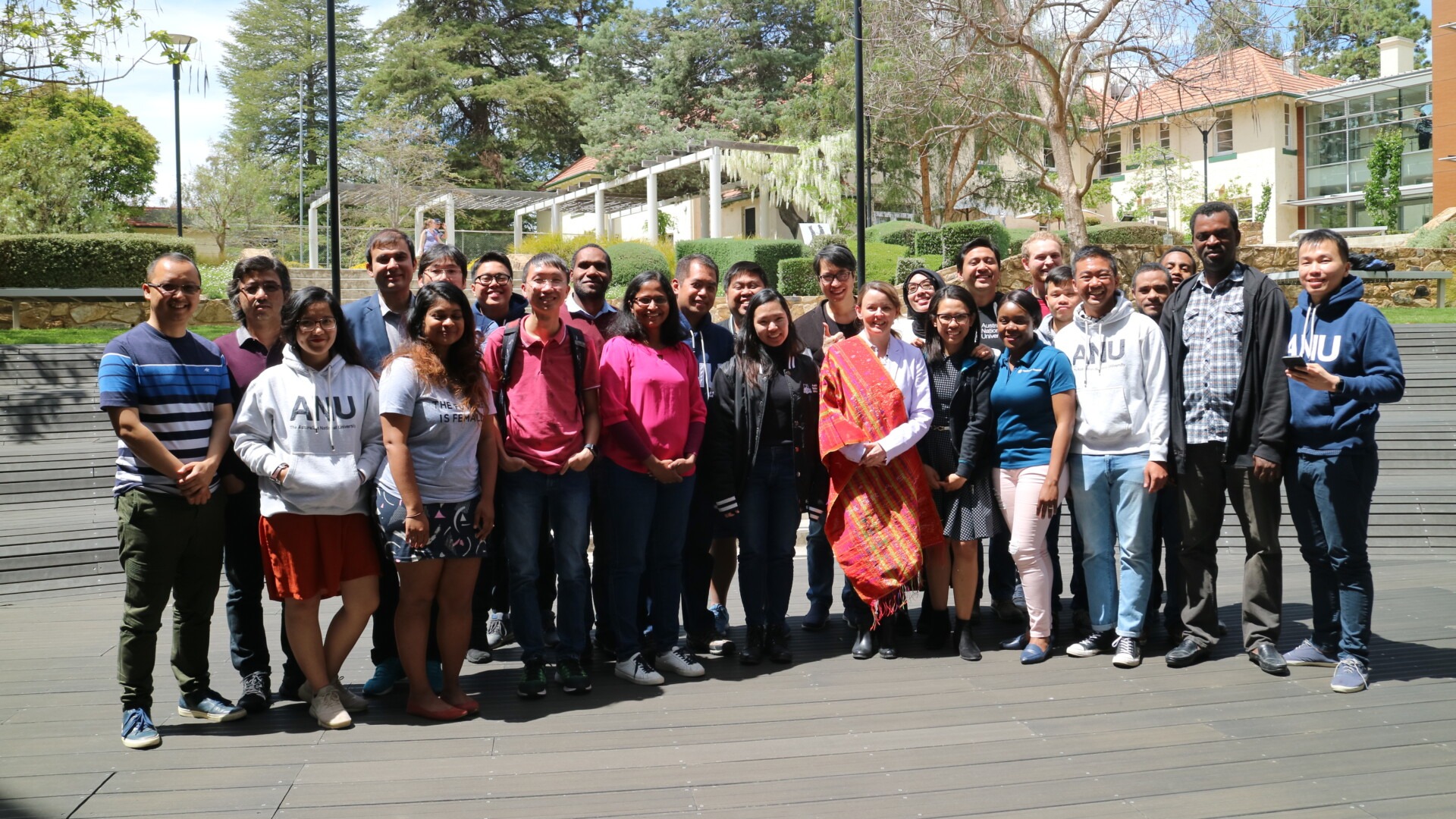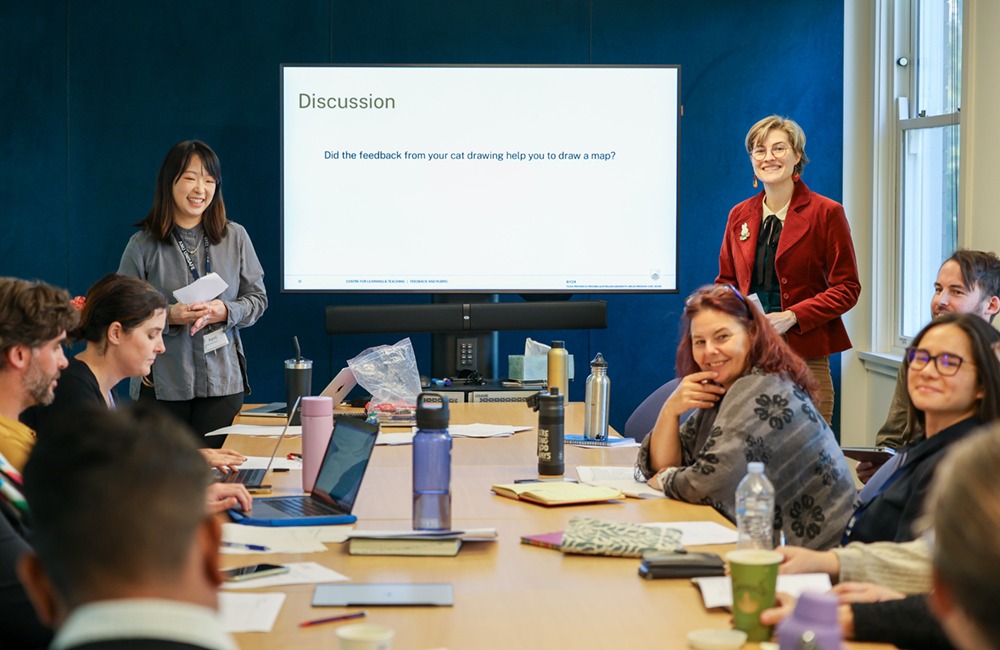My Neurodiversity Pride moment and what it was like to be a neurodivergent student at university
My Neurodiversity Pride moment was receiving my testamur at my PhD graduation at Monash University Clayton. I was diagnosed with autism between receiving my examiner remarks and graduation. At graduation, I sat gowned on the stage waiting for my conferral feeling immensely proud that I’d finished that long, and for me, tricky journey not understanding how my neurodivergence impacted on the process. It didn’t matter what other people thought, but it mattered to me that I finally understood why, what came naturally to some, was so difficult and felt almost impossible to me.
From the outside, I know my academic journey probably didn’t look that difficult. From second year of my undergraduate through to my Master’s degree I received distinctions and high distinctions, which hid much of my earlier and far more difficult learning journey. In high school I struggled to understand what study was and barely passed the HSC. I read books about how to study, but couldn’t connect it with it, and I was constantly distracted and found it difficult to focus when I was talked at continuously by teachers and couldn’t block out my peers’ chatter. At university, reading, conducting research and writing essays was achievable. I avoided tutorials and many lectures because of sensory issues and because I was reluctant to talk, and being a media student I escaped exam anxiety and distractions. However, in both environments I didn’t fit in. It probably didn’t help that during uni I cycled to campus and lugged my panniers into tutorials at a point in time when it was distinctly unfashionable to do so. When I read the scene in Graeme Simsion’s book The Rosie Project, where his main character Don makes a point about his gortex cycling jacket being superior to the loan dinner jacket they were offering at the restaurant; I felt seen. “My jacket is superior to yours by all reasonable criteria: impermeability to water, visibility in low light, storage capacity … speed of drying, resistance to food stains …” (p49).
My literal-mindness is so strong that I struggled to understand some of what others grasp instinctively at school and university. In her performance Douglas, Hannah Gadsby, Australian comedian and ANU Alumna 2019 tells a wonderful story about herself and how she went from being teacher’s pet to teacher’s nemesis in one school lesson all because she couldn’t understand what her teacher was teaching them about prepositions. That could have been me, and it could be your highly engaged student who asks too many questions. As an adult I continue to ask questions that others don’t understand as I try to work out how things fit together, and like Hannah in her story, I also ask them hours later. If you’re interested in tips to help your neurodivergent cohort I wrote an Interact post in April which includes some pointers. ;
Whilst my neurodiversity pride is deeply rooted in my academic achievements, and living authentically as an autistic person, and Hannah Gadsby’s is likely to be understood in viewing her autistic coming-out performance Nanette, I decided to ask a few other neurodivergent people I’ve connected with on social media for their perspective.
Local Canberran Yenn Perkins: “I am a very proud autistic person. I like and value myself just as I am and hope that other autistic people will also like and value themselves. It is a good way to be!”
Beth Radulski, Neurodiversity Advocate and PhD student at LaTrobe University: “As an autistic person and researcher of autistic masking (defined as the purposeful concealment of autistic traits), Neurodiversity Pride is, for me, about going beyond the basics of disclosure and reasonable adjustments for disability. It’s also about demanding the right to be and act in visibly autistic ways in public spaces – finger-flapping, stimming, differences in eye contact, and so forth – without facing discrimination, exclusion, hate or even violence. Neurodiversity Pride is about celebrating the personhood of non-neurotypical people, and acknowledging our right to be treated with the basic, fundamental principles of human rights and dignity that everybody deserves – regardless of neurotype.”
Dr Anna Whateley, Neurodivergent Australian author of YA own voices novel Peta Lyre’s Rating Normal: As a writer, Anna wants to keep developing and to keep working on neurodivergent representation and making sure it’s varied… “You can’t have just one. You can’t just have Sheldon, or you can’t just have the dogs being murdered in the night-time and things … You have to keep on producing enough that the variety of people who have been lacking in representation then have somewhere to look where they can identify and feel at home in the world and any sense of belonging. Because belonging is the absolute foundational thing that will preserve mental health in young adulthood.” (Australian Writers’ Centre Team 2020).
18 June is Neurodiversity Pride Day in the Netherlands – a day when the entire nation celebrates the value of people with different types of minds. Let’s join the celebration!
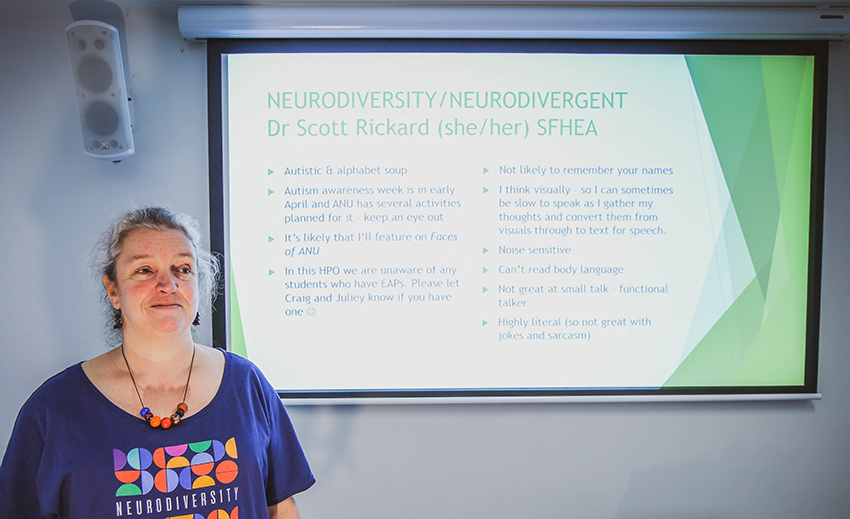
Dr Scott Rickard
Dr Scott Rickard is autistic, an Educational Designer at the Centre for Learning and Teaching and the Chair of the ANU Disability Action Plan Education Provider of Choice Action Group.
